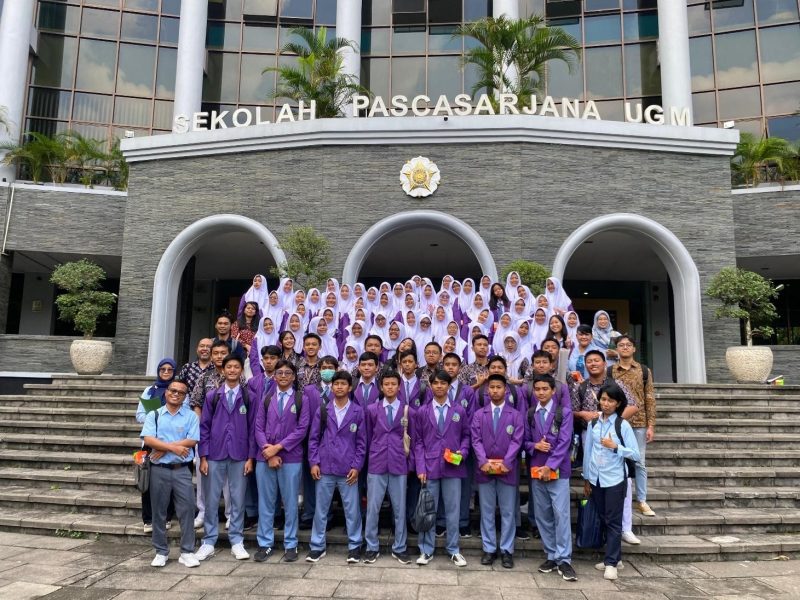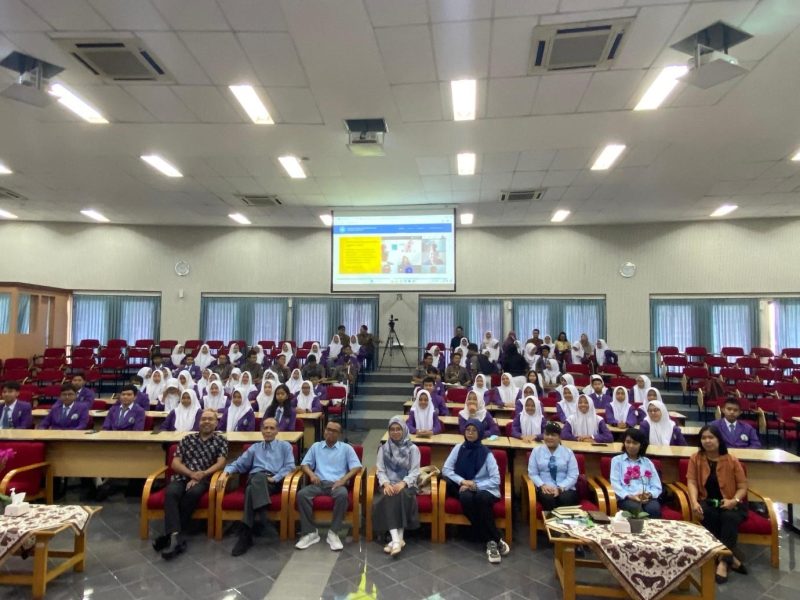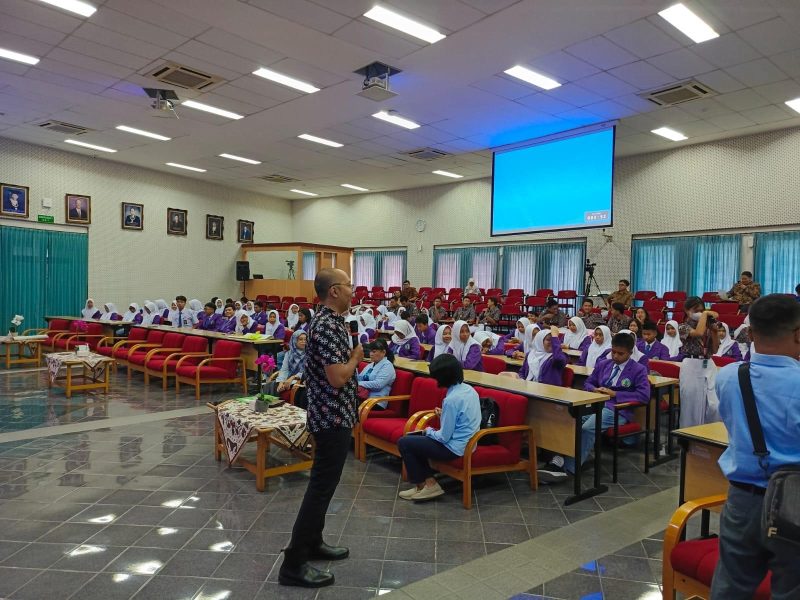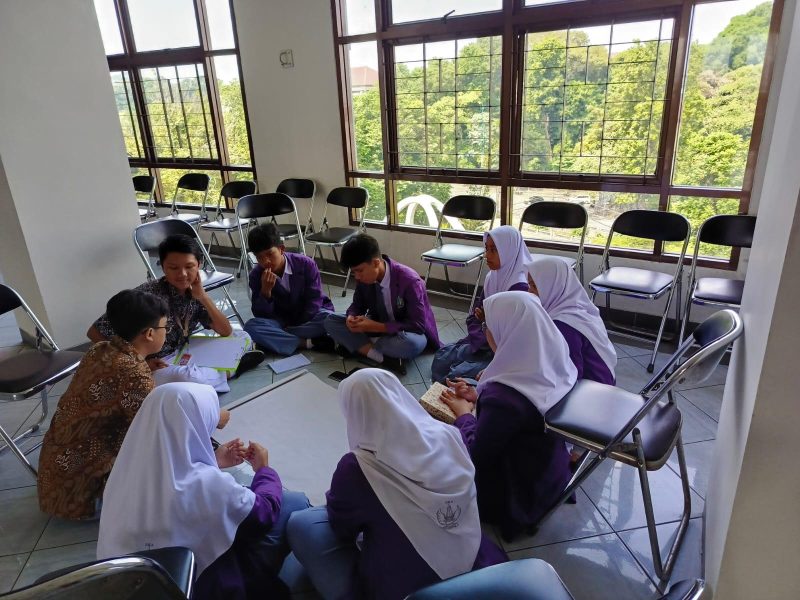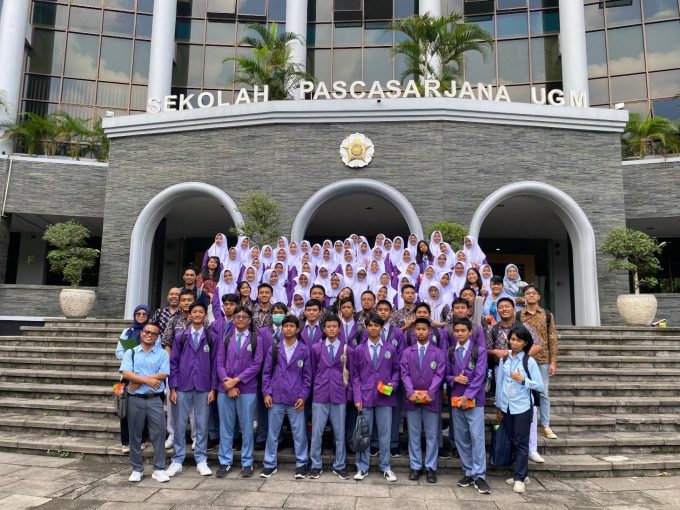
(11/6) The Master’s Program in Peace and Conflict Resolution (MPRK) at the Graduate School of Universitas Gadjah Mada received a visit from 100 students and teachers of SMAN 1 Wonosari, Gunung Kidul. This visit was part of the Pancasila Student Profile Strengthening Project (P5) carried out by the students. The activity aims to reinforce students’ character as Pancasila individuals who are devout, pious, noble, globally minded, cooperative, independent, critically minded, and creative. The P5 project has been ongoing since 2021, implemented in various schools across Indonesia. The visit was welcomed by the Head of the Interest Group, Prof. Dr. Mohtar Mas’oed, M.A., who conveyed a message for the students to live in diversity by prioritizing justice and compassion.
The students of SMAN 1 Wonosari, Gunungkidul had two main goals for this visit: to present the results of their P5 activities and to gain additional learning to strengthen the Pancasila student profile. To achieve these objectives, the MPRK Graduate School of Universitas Gadjah Mada organized activities involving presentations of students’ work and group discussions facilitated by MPRK Graduate School students.
During the group discussions, students were invited to understand the concepts of “Plurality,” “Power,” and “Privilege,” which are important in daily life, especially in diverse societal relations. Students were taught that plurality, power, and privilege are inevitabilities that can lead to inequality. Education that teaches the proper use of power and privilege is expected to prevent abuses of power that often occur in society, particularly in plural societies like Indonesia.
This activity is expected to provide SMAN 1 Wonosari students with a deeper understanding of Pancasila and how to apply it in daily life, especially in achieving social justice for all Indonesian people.
Sustainable Development Goals: SDG 4: Quality Education, SDG 16: Peace, Justice, and Strong Institutions, SDG 17: Partnerships for the Goals
Author: Dody Wibowo
Editor: Arfikah Istari

